To live up to our purpose of providing Food that Matters, our strategy is to Build Balanced Chains (BBC) to offer safe, healthy, tasty food while creating value across a future-proof ecosystem. We see our role as connecting and balancing supply and demand in a sustainable way.

Making relevant data available to farmers so that they can optimise their management procedures and improve animal welfare, efficiency and environmental sustainability effects.
Balanced supply and demand, with flexibility and a range of options for valorisation from head to tail.
Unique concepts and product innovations that tap into prevailing consumer trends.
The very best products, fresh on your plate, demand supply chains that are as short as possible. This helps to get the best products into shops and restaurants in the best possible way. As a trusted partner at the midpoint of the supply chains, we connect a group of farmers to a group of customers. We then aim to build tailormade, customer-specific chains, so that our customers can communicate added value such as the origin of products, animal welfare, or CO2 footprint. However, it takes time to match supply and demand.
Our job is to create balanced food supply chains that are demand-driven and relevant for all partners
Our integrated approach for the production and marketing of meat ensures an optimal balancing of supply and demand
Sedef has connected the Good Farming Star pork supply chain in 2021 to the ‘digital highway’ by means of blockchain technology.
By digitally connecting all relevant partners within the supply chain and exchanging data, we can increase the efficiency of the entire supply chain and guarantee the origin and integrity of our meat. This in turn creates trust. Our supply chain is the first in this sector to be connected through blockchain technology. Our other supply chains will follow in the years to come.
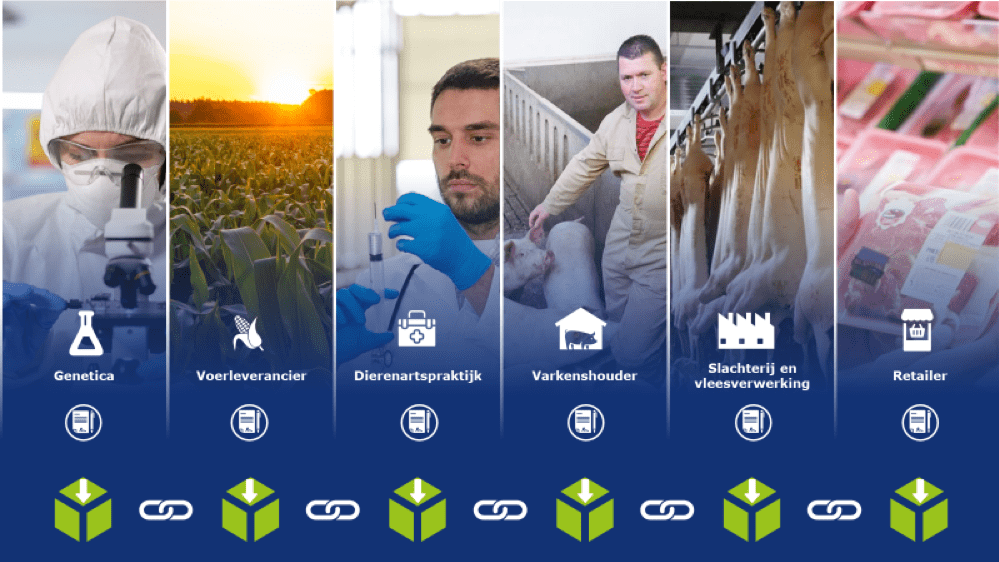
The integrity of our products and processes is important to customers and consumers. Throughout the whole supply chain, we have already implemented process integrity control systems with verification by product balances within the IFS-PIA standards. In addition to these assessment standards, we added product integrity monitoring using the DNA testing of animals and end products. The DNA of all Good Farming Star and organic sows is analysed and stored in a DNA data bank. In short: DNA is the ultimate check to show integrity throughout the whole supply chain.
In executing our strategy of Building Balance Chains, we consider the economic, social and environmental impacts of our decisions. In this way, we create more value, both for our supply chain and for society at large, and we fulfil our purpose of providing Food that Matters. On all our material topics, we set targets which we want to continuously improve on in the coming years.
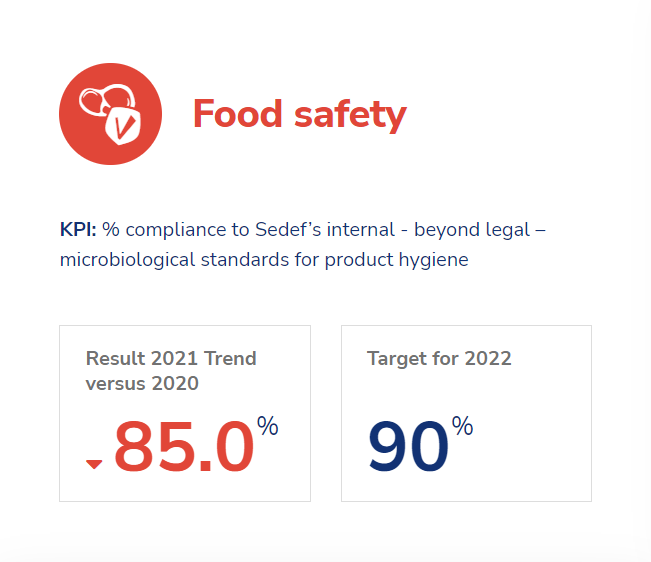
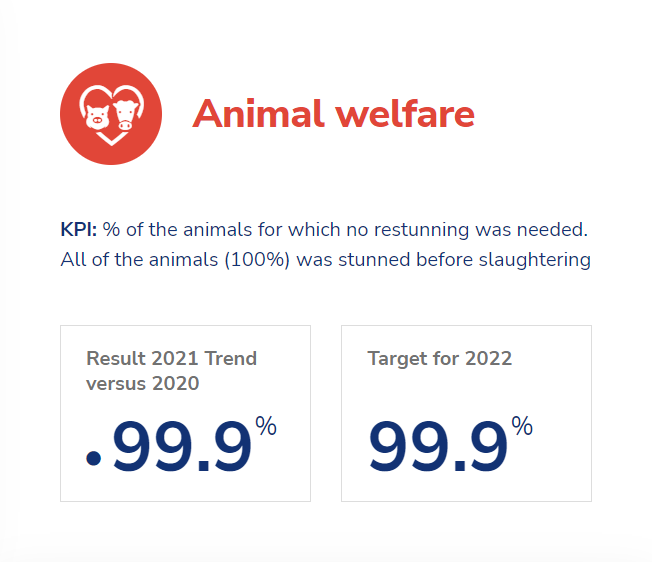
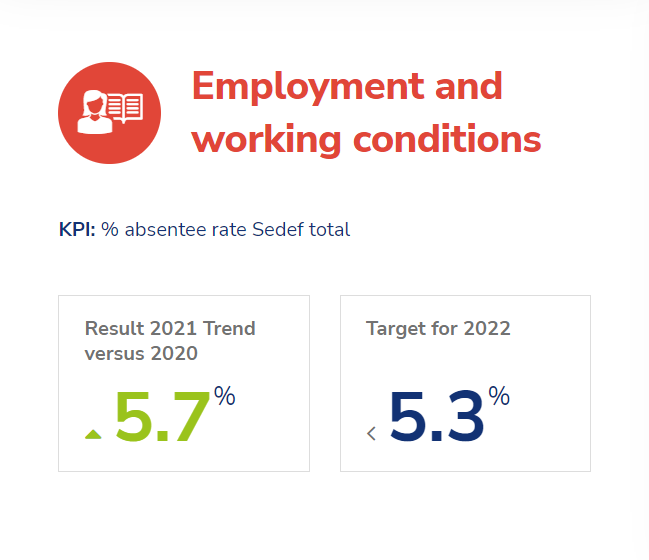
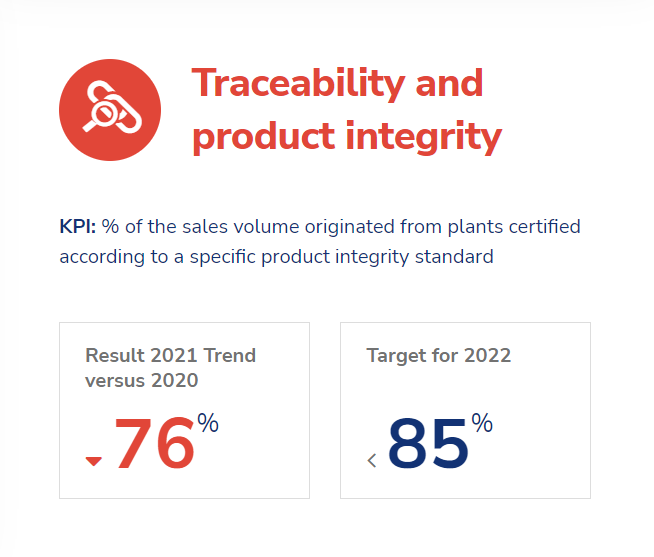
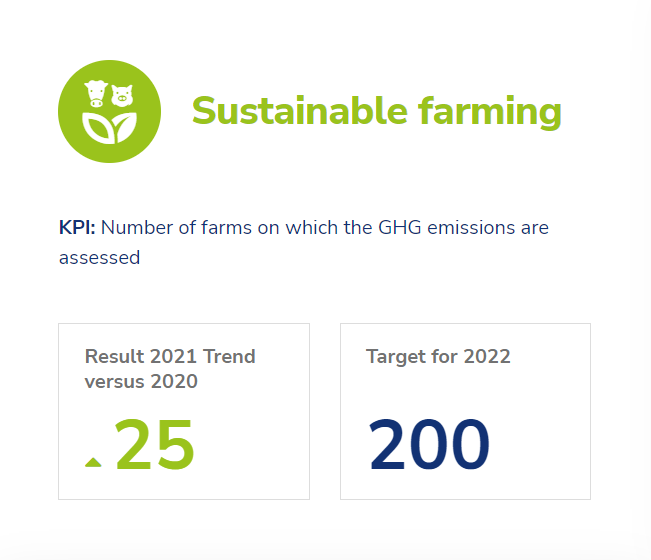
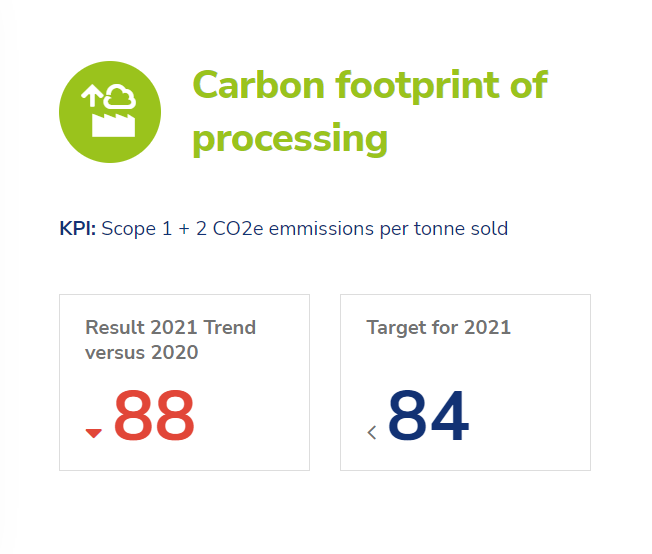
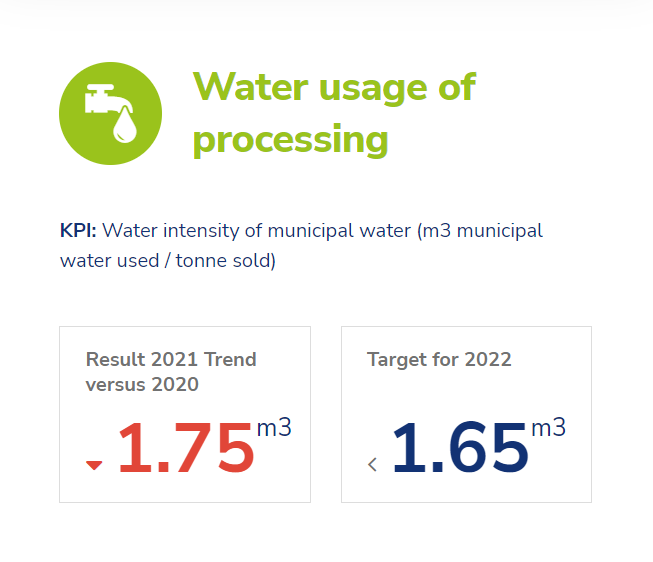
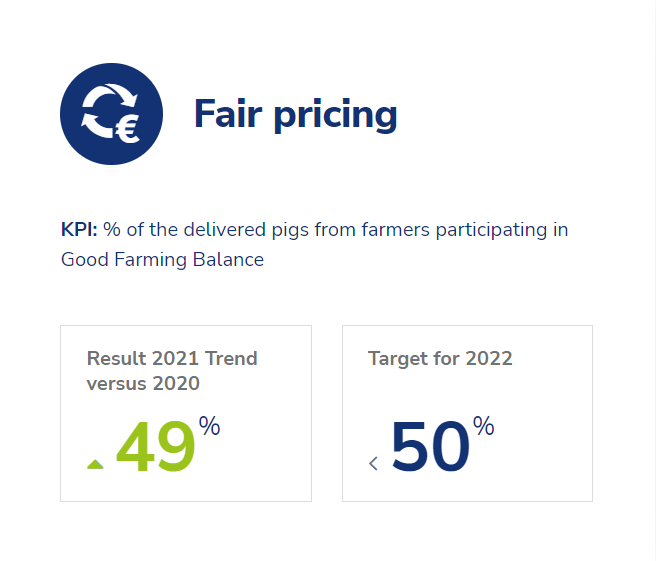
Of the eight material topics for which we strive to minimise negative impact or optimise positive impact, the following six topics are the most crucial for the day-to-day success of our business.
That is why, in our CSR policy, we give priority to these subjects and we start with them in the chapter CSR topics. As of 2022, we will have an updated CSR strategy with more focus on biodiversity and carbon footprint, which will be presented in our next CSR report. To stay a successful frontrunner, we use recognised standards and methods, such as food safety standards, integrity standards, animal welfare standards, and CO2 footprint calculations.
Our strategy and activities with regard to the material topics are related to some of the Sustainable Development Goals (SDGs). These 17 goals, to be achieved by 2030, were set by the United Nations to create a better world for everyone. These goals can only be achieved if governments, companies, NGOs and individuals each take responsibility for their role and work together. We show how our activities relate to the Sustainable Development Goals. On some of the material topics relating to the SDGs, we have set ourselves concrete targets.
© 2010 – 2023 Sedef SA. All right reserved.